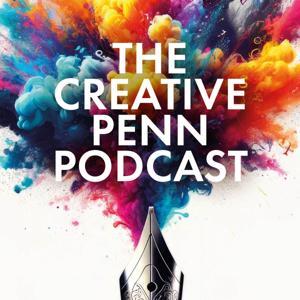* Listen on Spotify
* Listen on Apple
* Listen on Youtube
* Listen on Pocketcasts
In this deeply honest and wide-ranging episode of The Six Figure Author Experiment, Lee and Russell dive into the often-overlooked connection between bodywork, burnout, creativity, and financial success. Drawing from neuroscience, somatic tracking, chronic illness research, and lived experience, they explore why mindset work alone often fails — and how unregulated nervous systems keep authors stuck in cycles of exhaustion, anxiety, and self-criticism. This episode reframes success through the lens of safety, regulation, and joy, offering practical tools for healing, creativity, and sustainable growth in 2026 and beyond.
Topics Covered:
* Why writer’s block and income plateaus often originate in the body, not the mind
* The mind-body connection: psychosomatic symptoms, TMS, and neuroplastic pain
* Burnout as a survival response, not a personal failure
* How hustle culture disconnects creators from their bodies
* Why affirmations alone don’t work without somatic safety
* Somatic tracking and checking in with the body throughout the day
* The role of chronic stress in shutting down creativity and desire
* Trauma responses and internal “protector parts” formed in childhood
* How negative self-talk operates below conscious awareness
* Why your nervous system doesn’t understand language — only sensation
* Rest vs. productivity: redefining what “success” feels like
* Neutral thinking and releasing judgment as a path to peace
* Parasympathetic vs. sympathetic nervous systems explained simply
* Why anxiety is not a signal of danger — and when it actually matters
* Fight, flight, freeze, fawn, and people-pleasing as stress responses
* The myth of boredom and anxiety as opposites
* How animals regulate stress — and what humans forgot
* Breathwork basics: resonant breathing, 4–7–8 breathing, and why box breathing isn’t enough
* Why most adults don’t breathe properly (and how to fix it gently)
* Pain reprocessing therapy, Curable, JournalSpeak, and brain retraining
* Yoga, stretching, movement, and ancient regulation practices across cultures
* Religion, ritual, and community as nervous system regulation tools
* Why creativity and marketing require safety, play, and embodiment
* The danger of perfectionism and the value of “good enough” action
* Closing stress cycles instead of suppressing emotion
* Why emotions naturally last 90 seconds — and what keeps them looping
* Radical acceptance of self, others, and life events
* Why most things actually work out for most people
* The “dog on the nail” metaphor and choosing relief sooner
* How fear-driven busyness blocks inspiration
* Why rest creates better ideas faster than grinding
* Cutting spinning plates instead of sustaining exhaustion
* Doing fewer things better as the true path to scaling
* Reverse time-blocking: designing work around life, not the opposite
* Why regulation is the foundation for creativity, income, and joy
* Choosing softness, safety, and pleasure as a radical success strategy
* Teaching the next generation emotional regulation as a superpower
* Redefining “paradise” as presence, peace, and creative flow
This is a public episode. If you would like to discuss this with other subscribers or get access to bonus episodes, visit www.sixfigureauthorexperiment.com



































